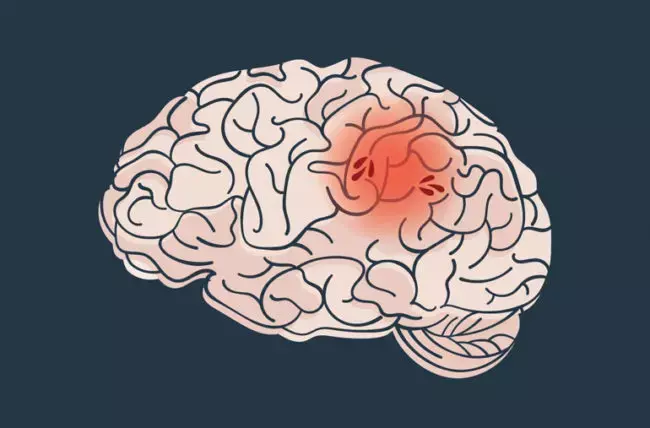- Home
- Medical news & Guidelines
- Anesthesiology
- Cardiology and CTVS
- Critical Care
- Dentistry
- Dermatology
- Diabetes and Endocrinology
- ENT
- Gastroenterology
- Medicine
- Nephrology
- Neurology
- Obstretics-Gynaecology
- Oncology
- Ophthalmology
- Orthopaedics
- Pediatrics-Neonatology
- Psychiatry
- Pulmonology
- Radiology
- Surgery
- Urology
- Laboratory Medicine
- Diet
- Nursing
- Paramedical
- Physiotherapy
- Health news
- Fact Check
- Bone Health Fact Check
- Brain Health Fact Check
- Cancer Related Fact Check
- Child Care Fact Check
- Dental and oral health fact check
- Diabetes and metabolic health fact check
- Diet and Nutrition Fact Check
- Eye and ENT Care Fact Check
- Fitness fact check
- Gut health fact check
- Heart health fact check
- Kidney health fact check
- Medical education fact check
- Men's health fact check
- Respiratory fact check
- Skin and hair care fact check
- Vaccine and Immunization fact check
- Women's health fact check
- AYUSH
- State News
- Andaman and Nicobar Islands
- Andhra Pradesh
- Arunachal Pradesh
- Assam
- Bihar
- Chandigarh
- Chattisgarh
- Dadra and Nagar Haveli
- Daman and Diu
- Delhi
- Goa
- Gujarat
- Haryana
- Himachal Pradesh
- Jammu & Kashmir
- Jharkhand
- Karnataka
- Kerala
- Ladakh
- Lakshadweep
- Madhya Pradesh
- Maharashtra
- Manipur
- Meghalaya
- Mizoram
- Nagaland
- Odisha
- Puducherry
- Punjab
- Rajasthan
- Sikkim
- Tamil Nadu
- Telangana
- Tripura
- Uttar Pradesh
- Uttrakhand
- West Bengal
- Medical Education
- Industry
Intensive therapy within critical time window fastens rehabilitation after stroke: Study

Intensive therapy, added to standard rehabilitation within the critical time window (2-3 months) fastens rehabilitation after a stroke, suggests a study published in the Proceedings of the National Academy of Sciences of the United States of America (PNAS).
Restoration of human brain function after an injury is a signal challenge for translational neuroscience. Rodent stroke recovery studies identify an optimal or sensitive period for intensive motor training after stroke: near-full recovery is attained if task-specific motor training occurs during this sensitive window.
A group of researchers extended these findings to adult humans with stroke in a randomized controlled trial applying the essential elements of rodent motor training paradigms to humans. Stroke patients were adaptively randomized to begin 20 extra hours of self-selected, task-specific motor therapy at ≤30 d (acute), 2 to 3 mo (subacute), or ≥6 mo (chronic) after stroke, compared with controls receiving standard motor rehabilitation. Upper extremity (UE) impairment assessed by the Action Research Arm Test (ARAT) was measured at up to five-time points.
The primary outcome measure was ARAT recovery over 1 y after stroke.
The results of the study are as follows:
· By 1 year the researchers found significantly increased UE motor function in the subacute group compared with controls.
· The acute group compared with controls showed smaller but significant improvement.
· The chronic group showed no significant improvement compared with controls.
· Thus task-specific motor intervention was most effective within the first 2 to 3 months after stroke.
· The similarity to rodent model treatment outcomes suggests that other rodent findings may be translatable to human brain recovery.
Thus, the researchers concluded that these results provide empirical evidence of a sensitive period for motor recovery in humans.
Reference:
Critical Period After Stroke Study (CPASS): A phase II clinical trial testing an optimal time for motor recovery after stroke in humans by Dromerick A et.al published in the Proceedings of the National Academy of Sciences of the United States of America.
DOI: 10.1073/pnas.2026676118
Dr. Shravani Dali has completed her BDS from Pravara institute of medical sciences, loni. Following which she extensively worked in the healthcare sector for 2+ years. She has been actively involved in writing blogs in field of health and wellness. Currently she is pursuing her Masters of public health-health administration from Tata institute of social sciences. She can be contacted at editorial@medicaldialogues.in.
Dr Kamal Kant Kohli-MBBS, DTCD- a chest specialist with more than 30 years of practice and a flair for writing clinical articles, Dr Kamal Kant Kohli joined Medical Dialogues as a Chief Editor of Medical News. Besides writing articles, as an editor, he proofreads and verifies all the medical content published on Medical Dialogues including those coming from journals, studies,medical conferences,guidelines etc. Email: drkohli@medicaldialogues.in. Contact no. 011-43720751


